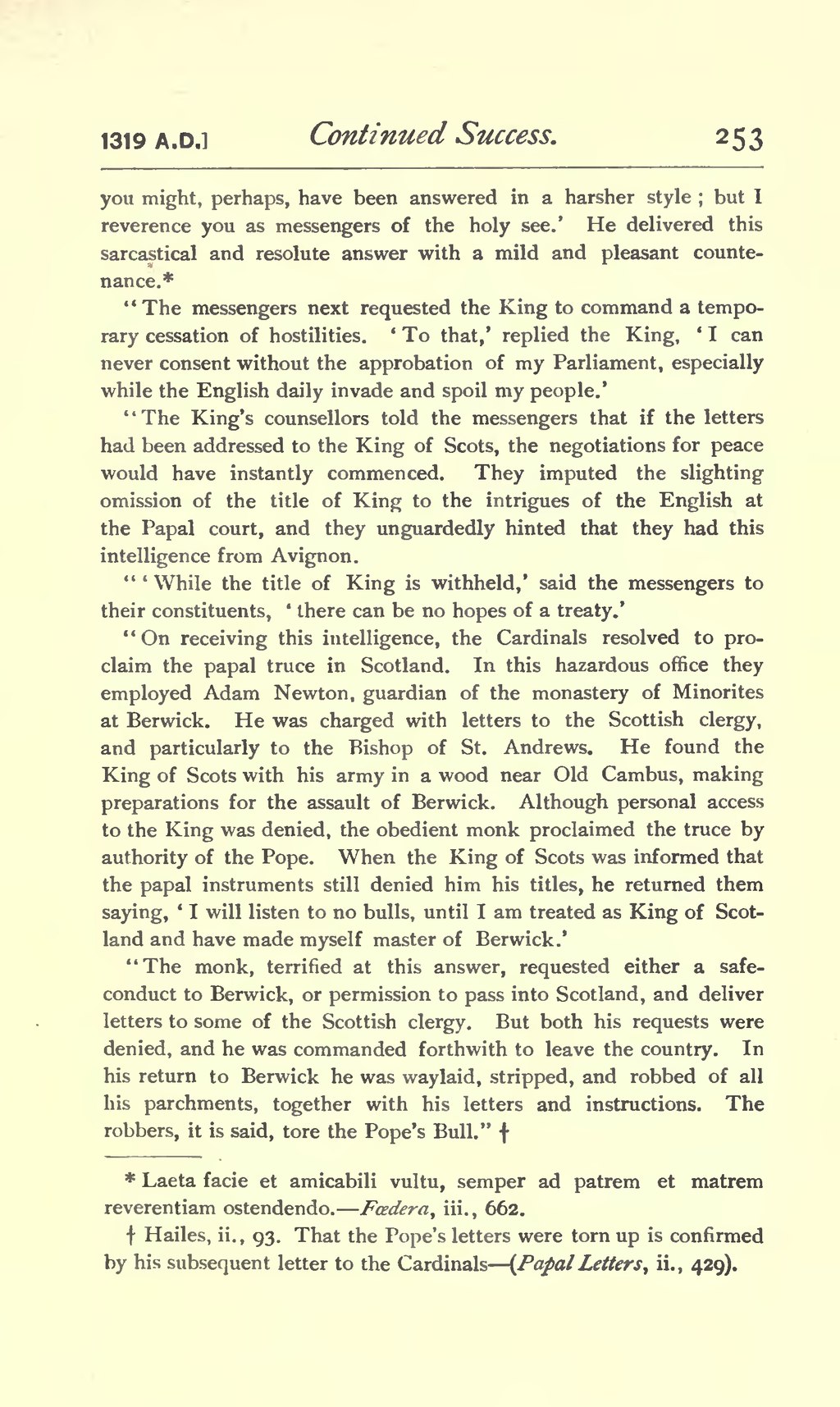you might, perhaps, have been answered in a harsher style; but I reverence you as messengers of the holy see.' He delivered this sarcastical and resolute answer with a mild and pleasant countenance.[1]
"The messengers next requested the King to command a temporary cessation of hostilities. 'To that,' replied the King, 'I can never consent without the approbation of my Parliament, especially while the English daily invade and spoil my people.'
"The King's counsellors told the messengers that if the letters had been addressed to the King of Scots, the negotiations for peace would have instantly commenced. They imputed the slighting omission of the title of King to the intrigues of the English at the Papal court, and they unguardedly hinted that they had this intelligence from Avignon.
"'While the title of King is withheld,' said the messengers to their constituents, 'there can be no hopes of a treaty.'
"On receiving this intelligence, the Cardinals resolved to proclaim the papal truce in Scotland. In this hazardous office they employed Adam Newton, guardian of the monastery of Minorites at Berwick. He was charged with letters to the Scottish clergy, and particularly to the Bishop of St. Andrews. He found the King of Scots with his army in a wood near Old Cambus, making preparations for the assault of Berwick. Although personal access to the King was denied, the obedient monk proclaimed the truce by authority of the Pope. When the King of Scots was informed that the papal instruments still denied him his titles, he returned them saying, 'I will listen to no bulls, until I am treated as King of Scotland and have made myself master of Berwick.'
"The monk, terrified at this answer, requested either a safe-conduct to Berwick, or permission to pass into Scotland, and deliver letters to some of the Scottish clergy. But both his requests were denied, and he was commanded forthwith to leave the country. In his return to Berwick he was waylaid, stripped, and robbed of all his parchments, together with his letters and instructions. The robbers, it is said, tore the Pope's Bull."[2]
